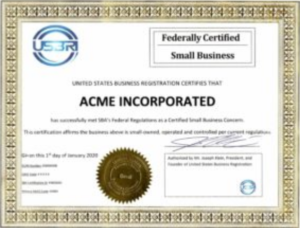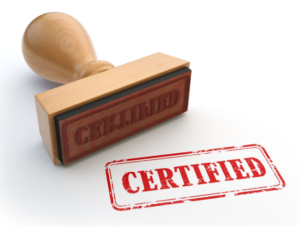The most common types of small businesses are sole proprietorships, partnerships, corporations, and a limited liability company (LLC),
Check your SBA Certification Eligibility below!

Check out our services page below!
The most common types of small businesses are sole proprietorships, partnerships, corporations, and a limited liability company (LLC),
Check your SBA Certification Eligibility below!

Check out our services page below!
The three parameters to be considered a small business are:
If you are interested in getting your small business certified, select the “Small Business Calculator” below to learn more about the services we provide!

Check out our services page below!
If you’re a small business owner, you may be considering certification as a way to enhance your competitiveness and access new opportunities. Certifications can open doors to government contracts, corporate partnerships, and funding opportunities. However, with various certification programs available, it’s essential to choose the one that aligns with your business goals and target markets. In this blog post, we’ll explore how to determine the right certification for your small business.
1. Define Your Business Goals
Before diving into the world of certifications, clarify your business objectives. Are you looking to:
Understanding your goals will guide your certification choice and help you prioritize which programs to pursue.
2. Research Certification Programs
Next, research the various certification programs available. Common certifications for small businesses include:
3. Assess Eligibility and Requirements
Each certification program has specific eligibility criteria and requirements. Review these criteria carefully to determine if your business qualifies. Consider factors such as ownership structure, revenue, and years in business. Be prepared to provide documentation to support your eligibility.
4. Understand the Benefits
Certifications offer various benefits, such as:
Evaluate how each certification aligns with your business needs and the potential return on investment.
5. Evaluate the Application Process
Consider the time and effort required to complete the certification application process. Some programs have more extensive documentation and verification requirements than others. Assess whether you have the resources and commitment to follow through.
6. Seek Guidance
Don’t hesitate to seek guidance from organizations that specialize in helping businesses with certification. Local small business development centers, chambers of commerce, and industry-specific associations often offer assistance in navigating the certification process.
7. Prioritize Certifications
You don’t need to pursue every available certification. Focus on the ones that best align with your goals and target markets. Prioritizing certifications can help you allocate resources more effectively.
Conclusion
Choosing the right certification for your small business can significantly impact your growth and opportunities. By defining your goals, researching programs, assessing eligibility, and seeking guidance, you can make an informed decision that aligns with your business objectives. Certifications can be a valuable asset in your journey toward success and expansion.
We do Small Business Certifications, check out our page below!
Check out our services page below!
The Small Business Administration certification is part of a contracting program that helps small companies compete for federal contracts. The government sets aside some of its contracts (both competitive set-aside and sole-source set-aside contracts) for small businesses each year to limit competition. Check your Small Business eligibility by using our calculator below!

Check out our services page below!
The SBA 8(a) program provides business development assistance to small businesses that are socially and economically disadvantaged. To be eligible for the program, businesses must meet specific criteria. This includes being a small business, demonstrating social and economic disadvantage, being owned and controlled by a socially and economically disadvantaged individual, and showing good character. Additionally, applicants must have a personal net worth below a certain threshold and meet the applicable size standards for their primary industry. Meeting these eligibility requirements opens up opportunities for government contracts, mentorship, and training through the 8(a) program.
Check out our services page below!
The eligibility requirements for the HUBZone program are as follows:
Meeting these eligibility requirements allows a business to participate in the HUBZone program and gain access to federal contracting opportunities with set-aside preferences. It is important to note that maintaining compliance with the program’s requirements is essential to retain HUBZone certification and continue benefiting from the program.
You can check if your business qualifies for a HUBZone Certification below!
To become certified as a Veteran-Owned Small Business (VOSB), it is crucial to fulfill the necessary requirements outlined below:
For Service-Disabled Veteran-Owned Small Businesses (SDVOSB), the following criteria are applicable in addition to the above:
By meeting these requirements, you can pursue VOSB certification. SDVOSBs must ensure they have the necessary documentation to prove their disability status.
To qualify for WOSB certification, the applicant company must meet specific criteria. Firstly, the company must be considered “small” according to SBA’s size standards for its primary industry, as outlined in 13 CFR 127. It is recommended to refer to the NAICS listing and its corresponding size standards for verification. Additionally, the applicant company must have at least 51% unconditional and direct ownership and control by one or more U.S. citizen women. Management and daily operation must be under the control of one or more women owners who make long-term decisions for the business.
For corporations, specific criteria apply: Women must either constitute a majority of the Board of Directors or hold a majority of the Board votes through weighted voting. Alternatively, women must represent 51% of the voting power, serve on the Board, and possess enough voting power to overcome any supermajority requirement.
The WBENC certification process ensures compliance with WOSB standards through a comprehensive two-part approach involving thorough documentation review and a site visit interview with the female owner/s. It is recommended to review the WOSB Ready site for additional program requirements. A comprehensive listing of the WOSB Program NAICS Codes is available as well.
Note that if the applicant company is currently debarred or suspended from Federal Government Contracting, it is not eligible for WOSB certification.
In addition to meeting the above criteria, applicants must be registered in the SAM (System for Award Management) and obtain a Unique Entity Identifier (UEI) issued by www.sam.gov. It’s important to note that there is no fee for SAM registration, and applicants should ensure they access the correct site: www.sam.gov. If experiencing difficulties with SAM registration, supplemental instructions are provided.
Regarding WOSB Federal Contracting eligibility, the federal government restricts competition under the WOSB Program only in specific industries as specified in 13 C.F.R. 127.500. SBA has identified these industries based on the North American Industry Classification System (NAICS) codes. If any NAICS code listed on the WOSB certificate corresponds to a WOSB code on the NAICS listing for the Women-Owned Small Business Federal Contracting Program set-asides, the applicant is considered eligible.
Check out our services page below!
When it comes to government contracts, the potential profitability can vary depending on the type of set-aside program. While some small business set-aside contracts may involve relatively small dollar amounts, such as $20,000 or less, 8(a) contracts present a different opportunity and hold the potential for greater profitability. Under the 8(a) Business Development Program, small businesses that offer products or services have the chance to earn contracts of up to $4 million, providing a significant growth opportunity. Furthermore, for manufacturing firms, the potential contract value extends even higher, reaching up to $6.5 million. These higher contract thresholds in the 8(a) program open doors for small businesses to pursue larger and more lucrative opportunities, allowing them to expand their operations and increase their revenue potential. Therefore, for eligible businesses, pursuing 8(a) certification can offer the prospect of securing more profitable contracts in comparison to other small business set-aside programs.
Check out our services page below!
An SBA certificate refers to a certification issued by the Small Business Administration (SBA), a government agency in the United States. The SBA offers various certification programs to support and promote small businesses, including programs like 8(a) Business Development, Women-Owned Small Business (WOSB), Service-Disabled Veteran-Owned Small Business (SDVOSB), and HUBZone (Historically Underutilized Business Zone). These certificates serve as official recognition that a business meets specific criteria and qualifies for certain benefits, such as access to government contracts, preferential treatment in procurement opportunities, and assistance in business development.
Check out our services page below!